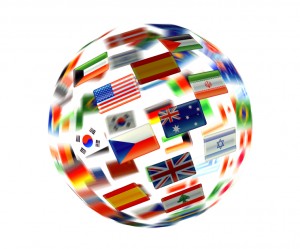 UN Requests 39 Million USD for Haiti
UN Requests 39 Million USD for Haiti
The UN requested today 39 million USD worth in assistance to fight malnutrition and cover basic needs of over one million victims of Hurricane Sandy in Haiti.
According to a communiqué from the UN Office for Coordination of Humanitarian Affairs, some 22 million of that sum will be needed to meet the most urgent needs of Haitians through late 2012.
The call was made by UN Deputy Emergency Coordinator Catherine Braga; Minister Advisor of Haiti’s Permanent Mission to Haiti, Jean-Bony Alexandre, and Deputy Representative of the UN Secretary General to Haiti, Nigel Fisher.
At least 1.5 million people risk food lack of security while two percent of the Haitian children under five risk suffering acute malnutrition.
According to Fisher, who is also humanitarian coordinator for Haiti, the passage of Hurricane Sandy dealt a fierce blow on the country’s reconstruction efforts in the wake of the wake of 2010, making the lives of vulnerable Haitians even more precarious.
Fisher criticized the fall in donors support to Haiti and demanded “urgent funding to meet basic humanitarian needs and recovery efforts in Haiti.”
Hurricane Sandy left 1.80 million victims and caused flood and damages in 18,000 houses, as well as in roads, public buildings, schools and hospitals.
Also today, the UN noted that on Nov.9 Haiti suffered another day of heavy rain not linked to Hurricane Sandy, which left at least 10 deaths and thousands of people displaced.
Palestinian President Considers Israeli Reaction Extreme
The rabid Israeli reaction to the request of the Palestinian National Authority (PNA) to increase their status at the United Nations (UN) is due to its expansionist intentions, affirmed President Mahmoud Abbas here.
Issues concerning refugees, borders, Jerusalem, security and water can only be resolved through the UN, Abbas added during a public rally for the eighth anniversary of the death of Palestinian leader Yasser Arafat, for reasons that remain under investigation.
The Israeli government threatened the ANP with drastic reprisals, including financial blockade if they file their petition to the General Assembly later this month, as announced.
United States is actively running a campaign against the proposal and some of its Atlantic allies have announced they will oppose it. Palestinians are said to have the support of the Arab and Islamic states, and with a comfortable majority in the General Assembly, which is qualified to approve the request.
To address the settlement activity and save the two-state solution it is necessary to go to the international organization, declared the president.
In the last two weeks the government of Prime Minister Benjamin Netanyahu has authorized the construction of three new paramilitary settlements in the West Bank areas that should be part of the independent Palestinian state.
It also reaffirmed the commitment to end the inter-Palestinian divisions, to “hold fair presidential and legislative elections” and stated that the ANP is the only representative of the Palestinian people.
At present, the ANP governs the West Bank and the Gaza Strip is under a government led by the Islamist Hamas (Zeal).
Canadians Have Little Trust on Government
A poll has revealed that Canadians have little trust in the government of Prime Minister Stephen Harper, the Parliament and the mainstream media, as a consequence of the growing political struggle of the last few years in Canada.
According to an opinion poll by the Environics Institute that interviewed 1,500 people, 16 percent of them trust Harper, and 17 percent in the Canadian Legislative system.
Meanwhile, political formations received an approval of 10 percentual points and the mainstream media received 6 percent.
The authors of the study attributed these very low numbers to an increase in the nastiness of the battle for power in Canada in the 2004-2011 period, when governments with a minority presence in both chambers of the Parliament predominated.
However, the questioned people showed a better popular support towards the Armed Forces (53 percentual points) and the Canadian Mounted Police (36 points).
Via PL
